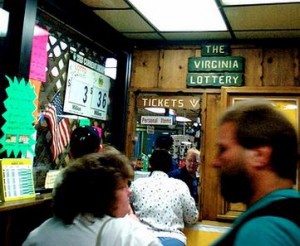Lottery Players Think Myopically

“A lot of people say that the lottery is a regressive tax, which is true,” Loewenstein says, referring to taxes that aren’t pegged to income, and take a larger proportion of income from those who can least afford it. (A person who makes $15,000 a year and buys $1,500 worth of lottery tickets has spent 10 percent of his income, while a person who makes $150,000 and buys $1,500 has spent only 1 percent.) “It is true that poor people spend a substantially higher fraction of their income on lottery tickets” than the affluent, he notes. “But I don’t think it is necessarily irrational. Buying lottery tickets is a fairly inexpensive way of raising the ceiling on what can happen to you economically.” In other words, when your economic prospects are dim, buying hope makes sense.
Every month, Nautilus publishes essays, investigative stories, and works of fiction about science and chooses a theme. The theme for August is: “The Unlikely,” stories about understanding our odds and probabilities. Today, Adam Piore examines the sociology behind why we play the lottery, though if you’re looking to figure out whether or not you should play the lottery, see our story in May by Matt Levine.
Photo: Taber Andrew Bain
Support The Billfold
The Billfold continues to exist thanks to support from our readers. Help us continue to do our work by making a monthly pledge on Patreon or a one-time-only contribution through PayPal.
Comments